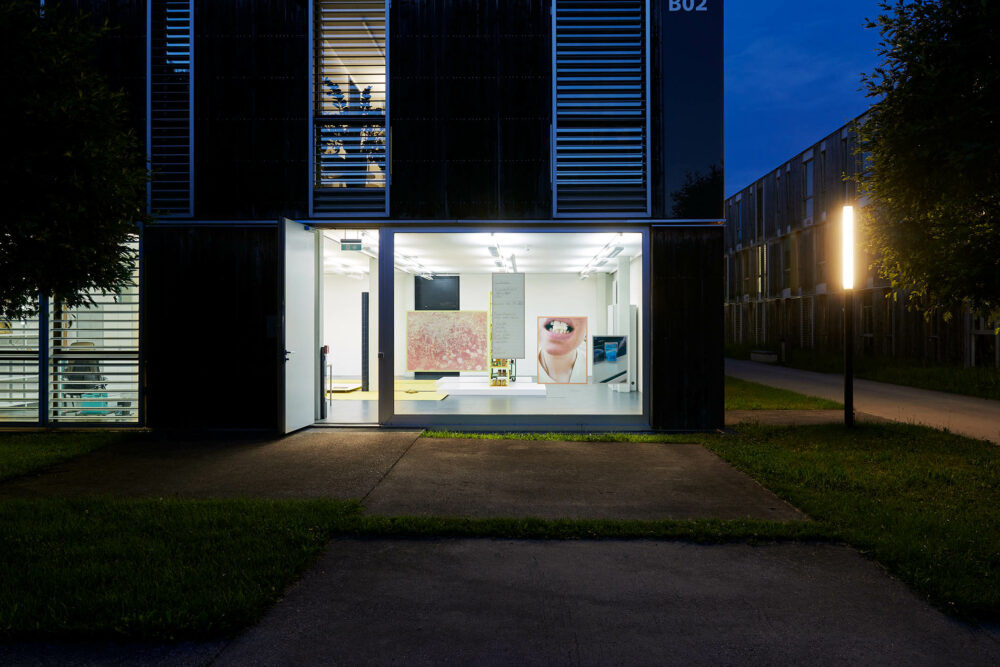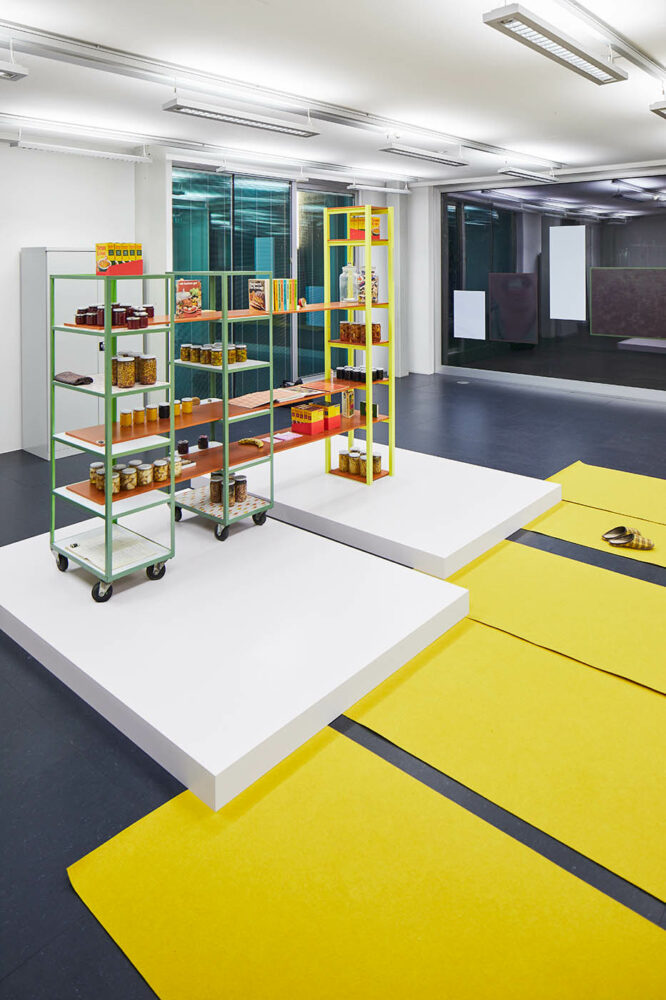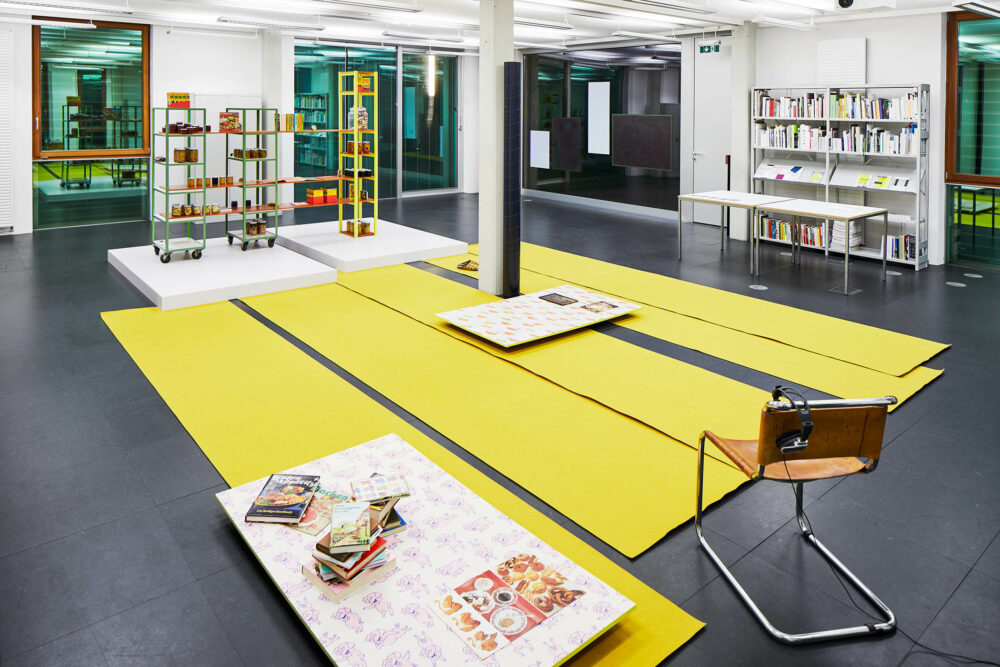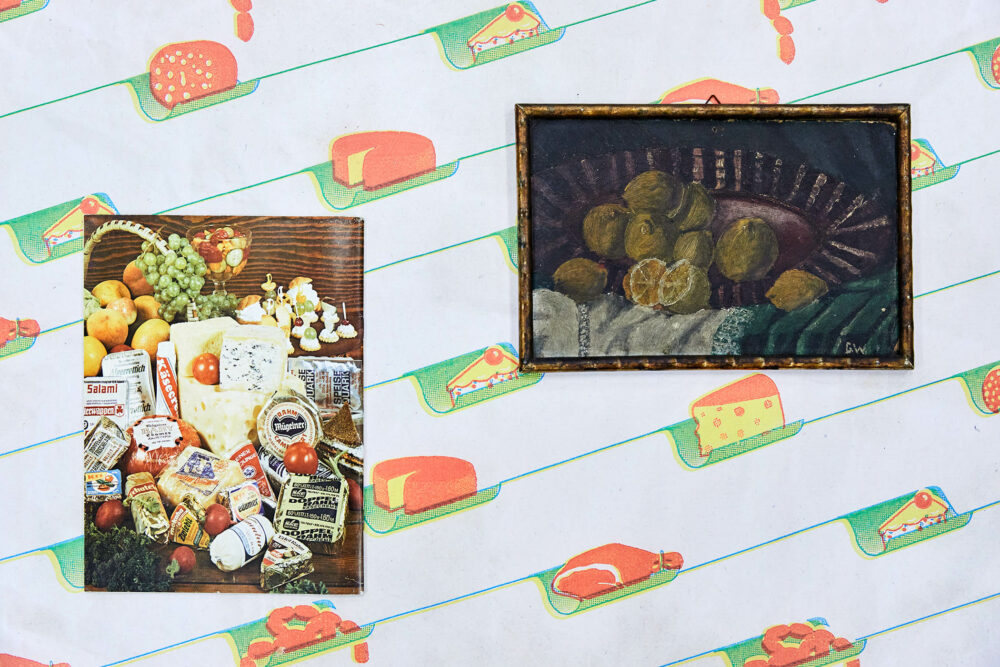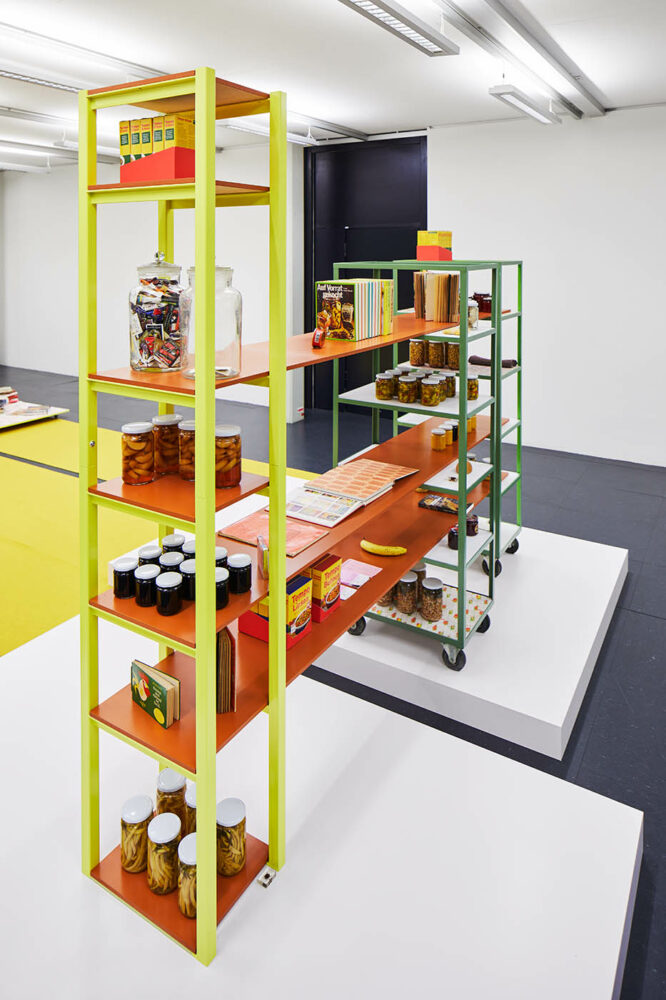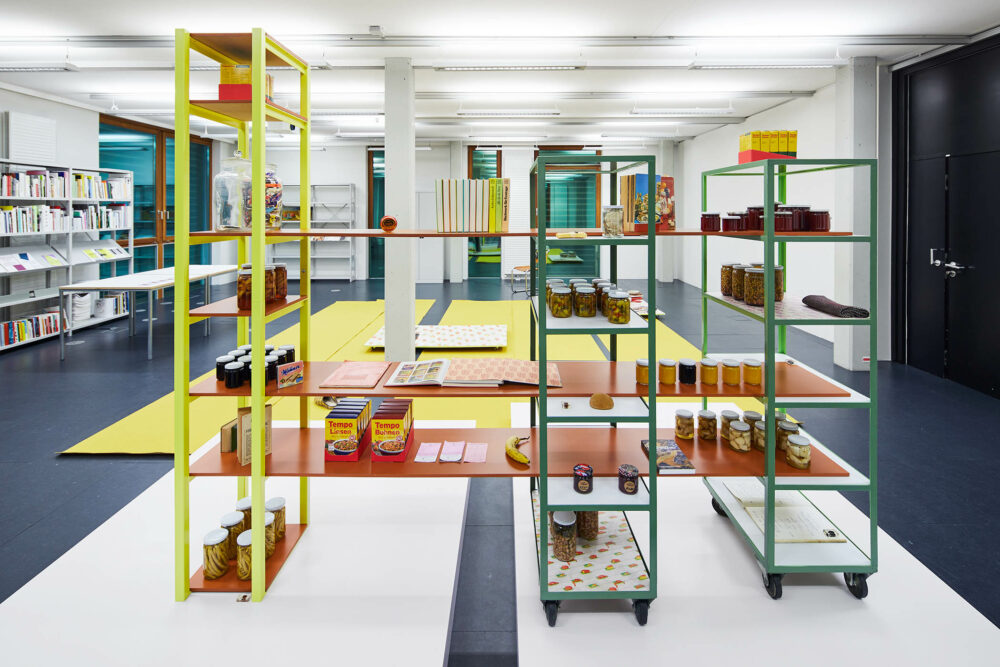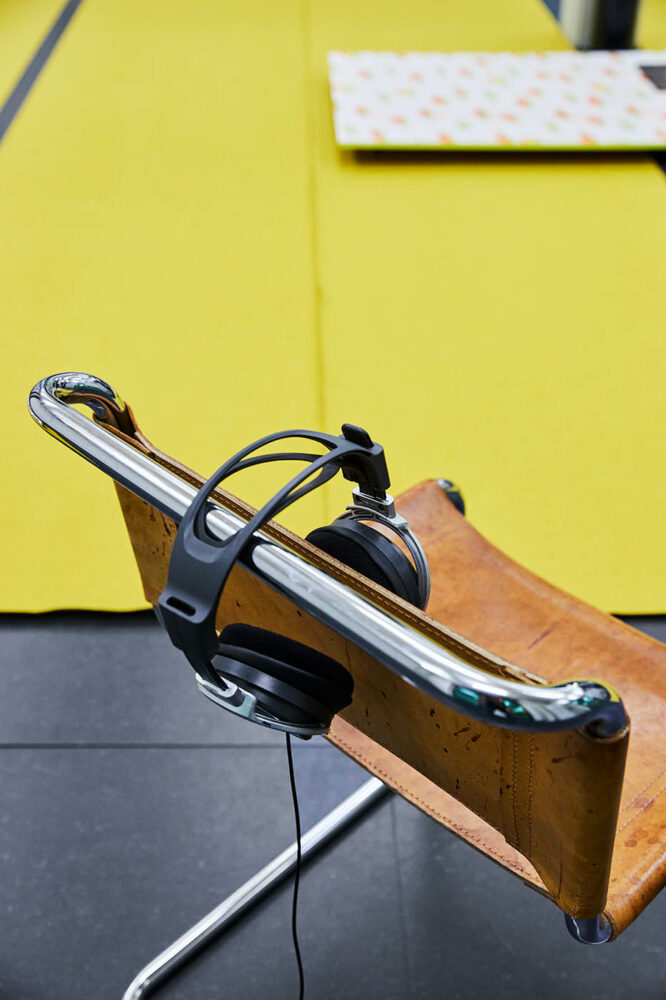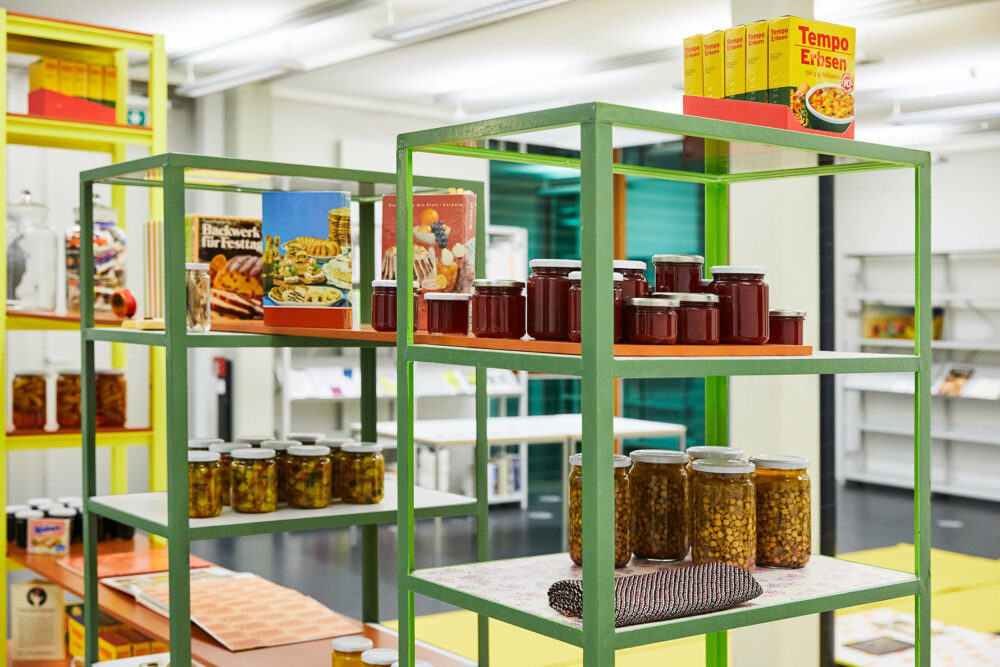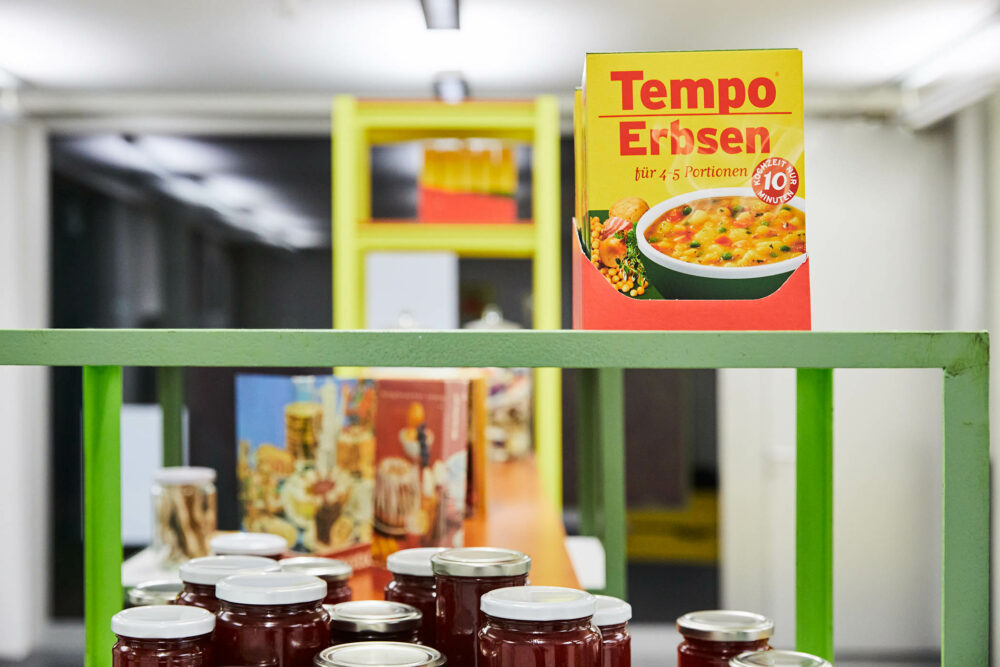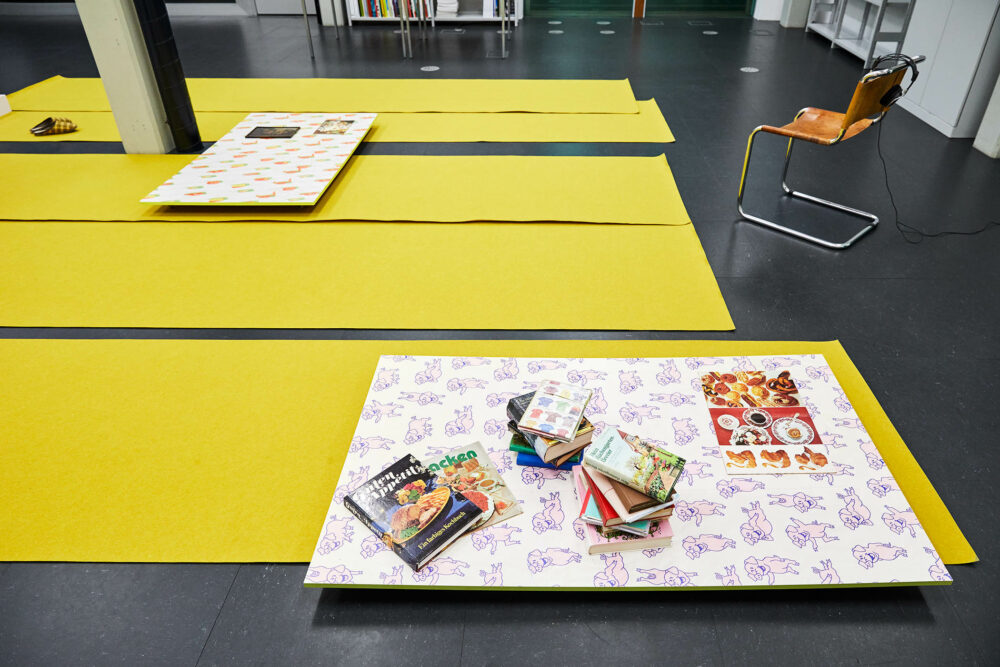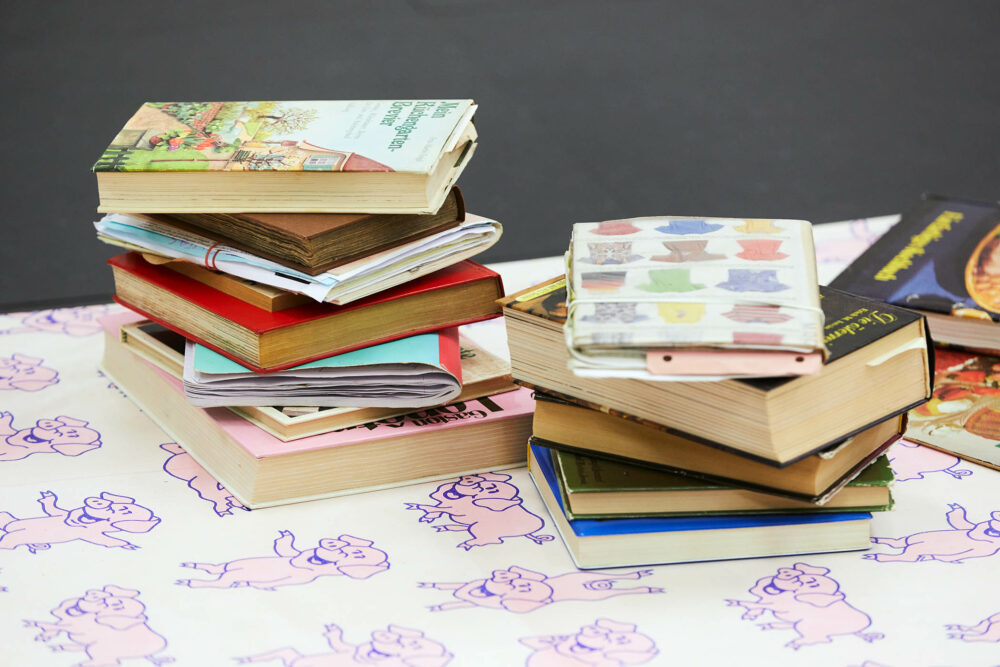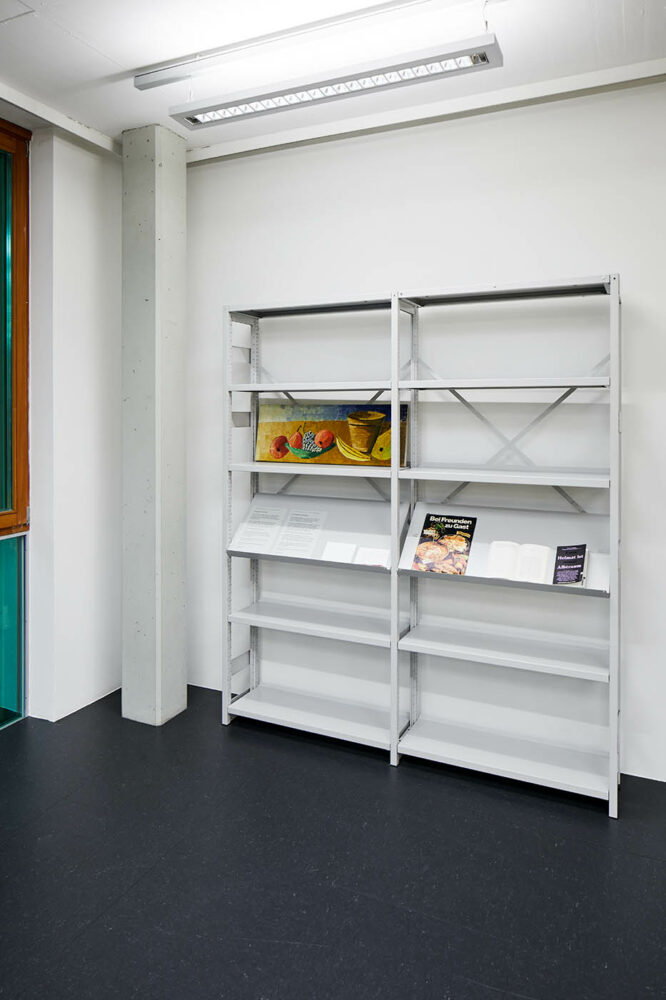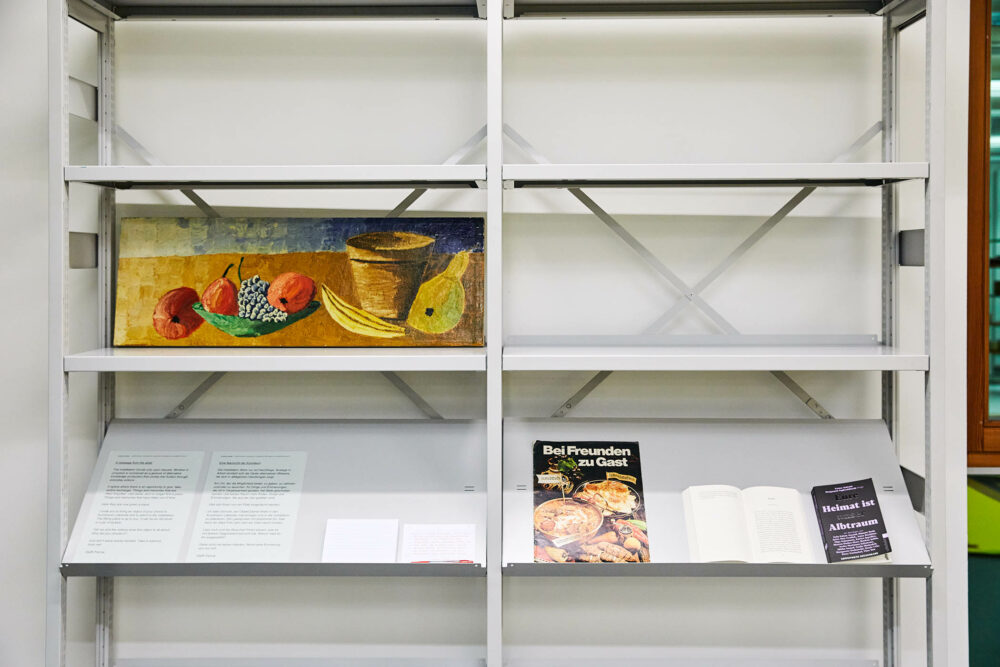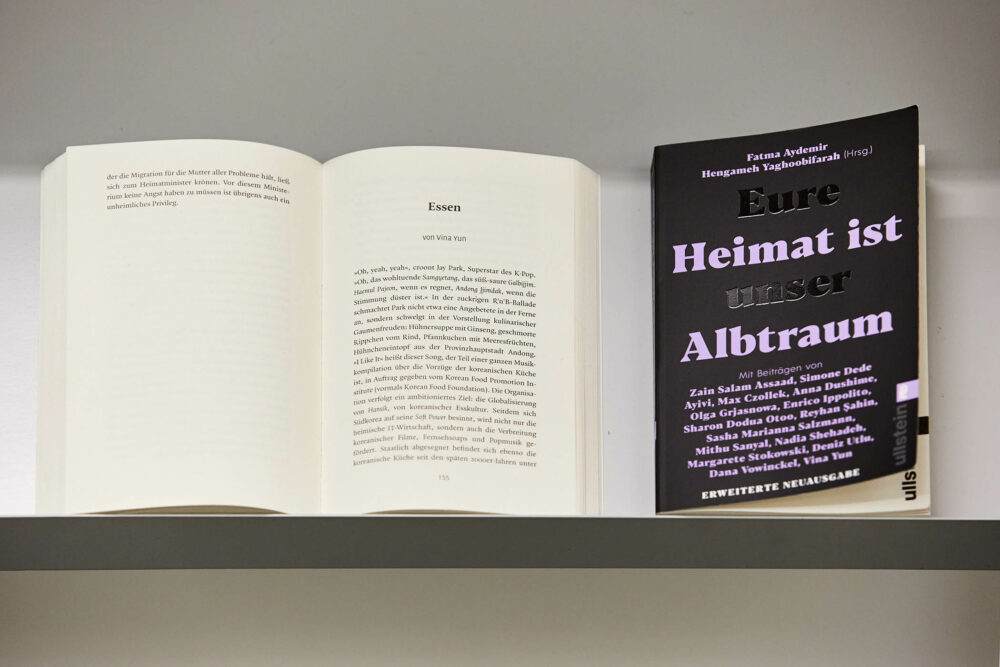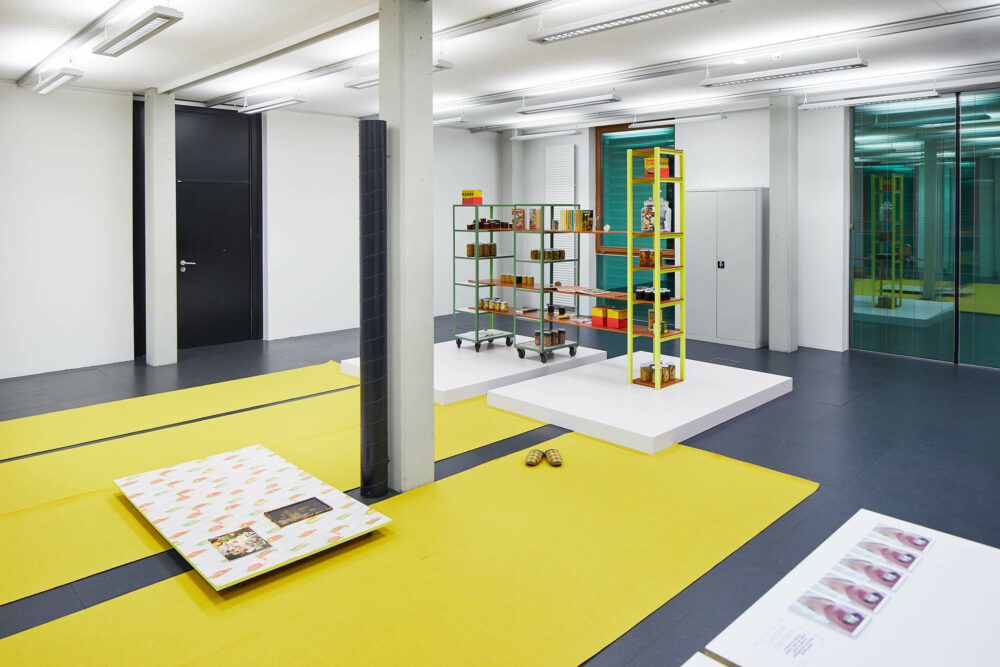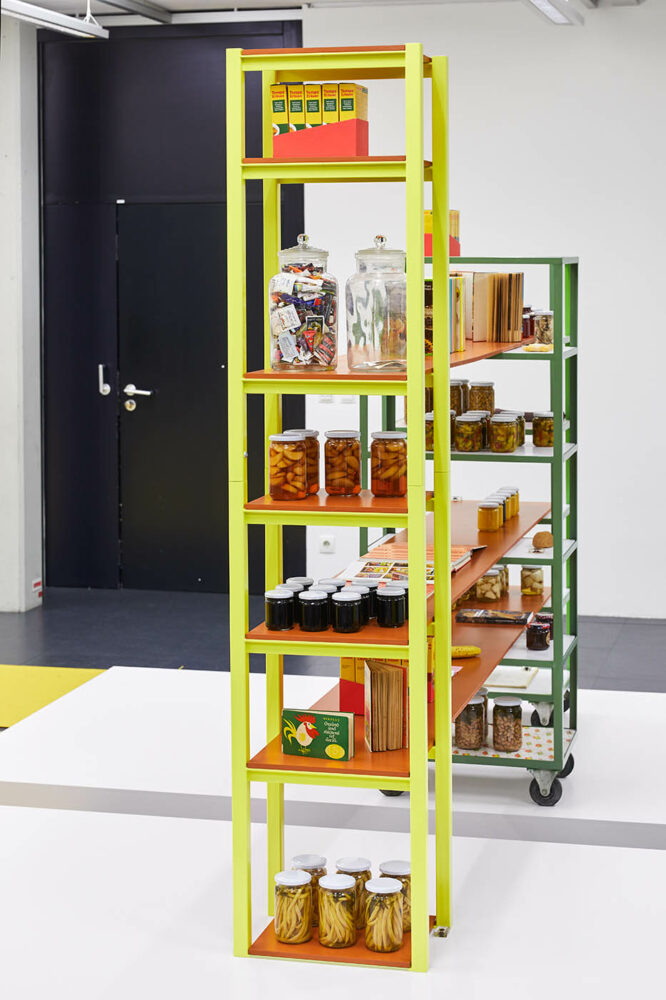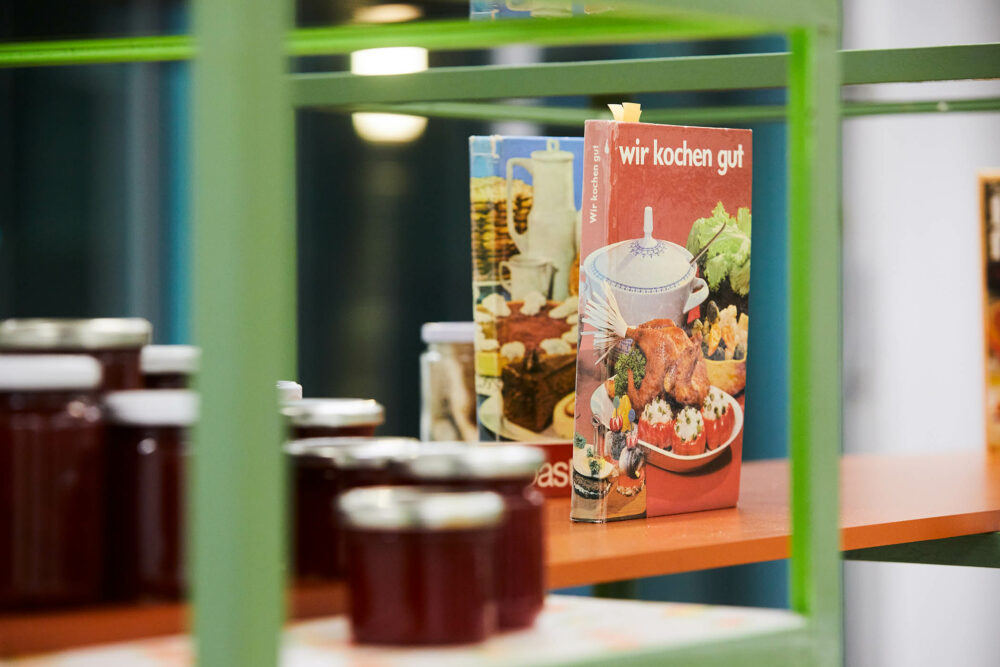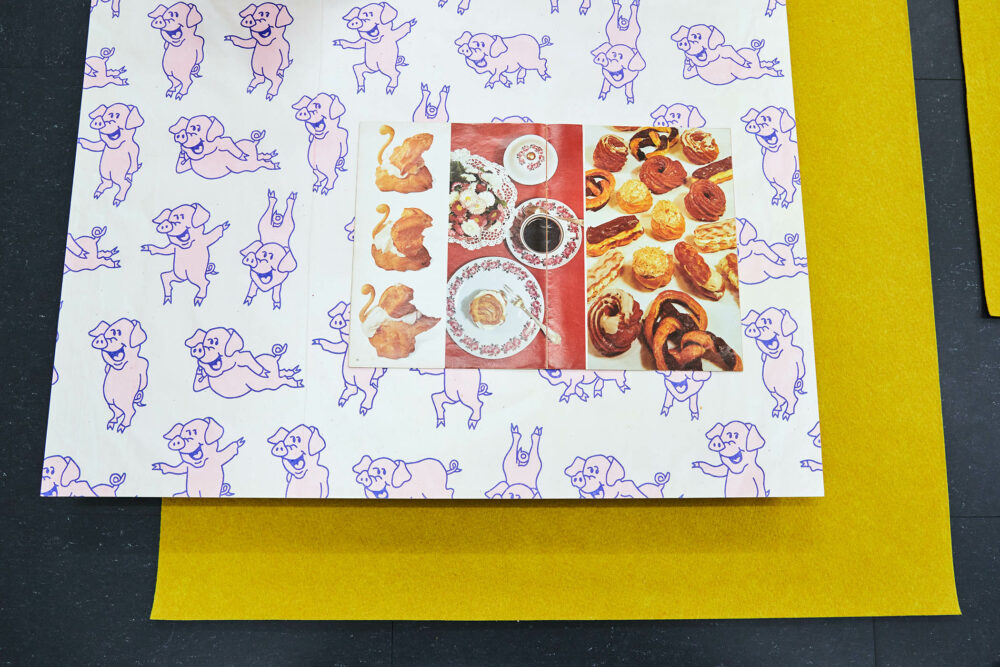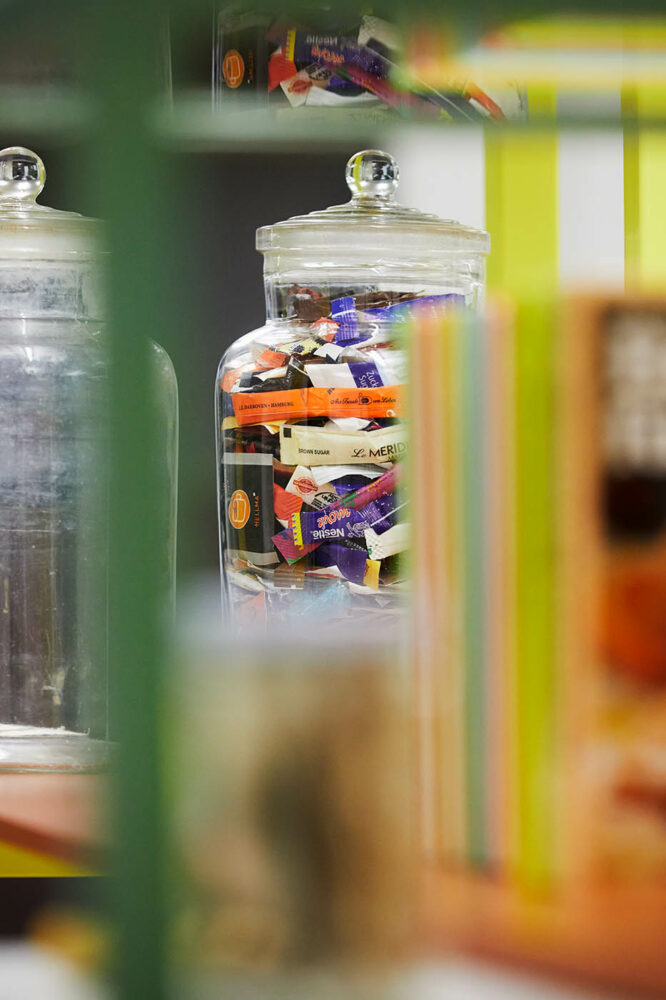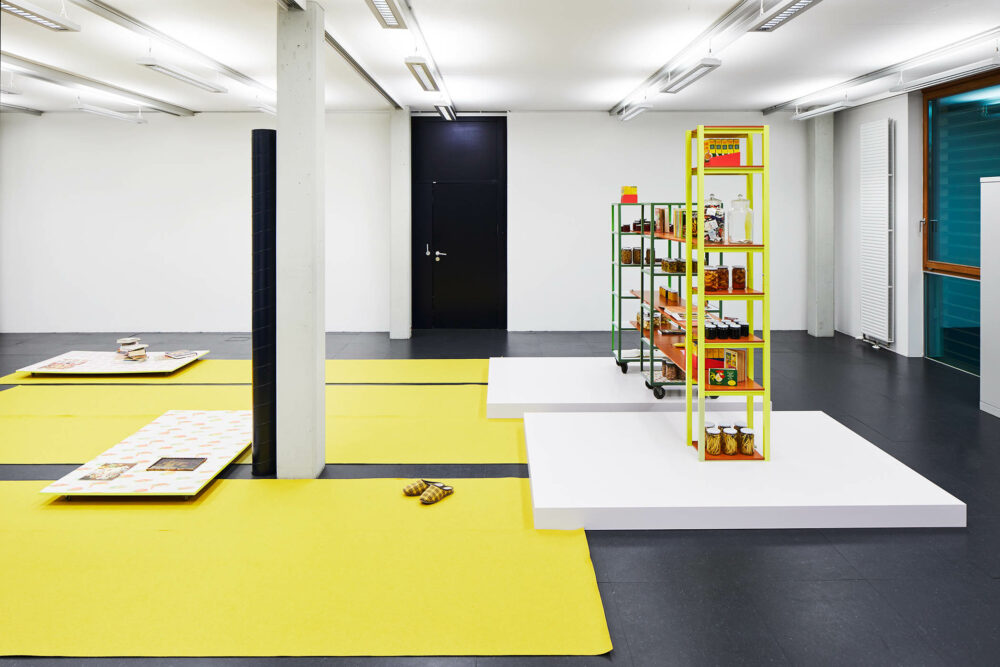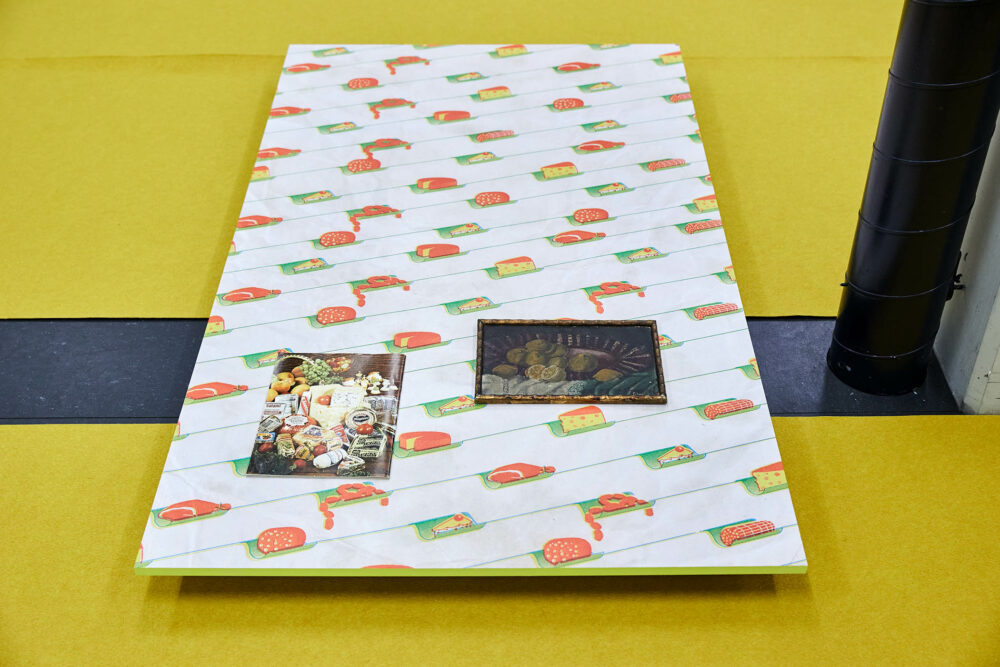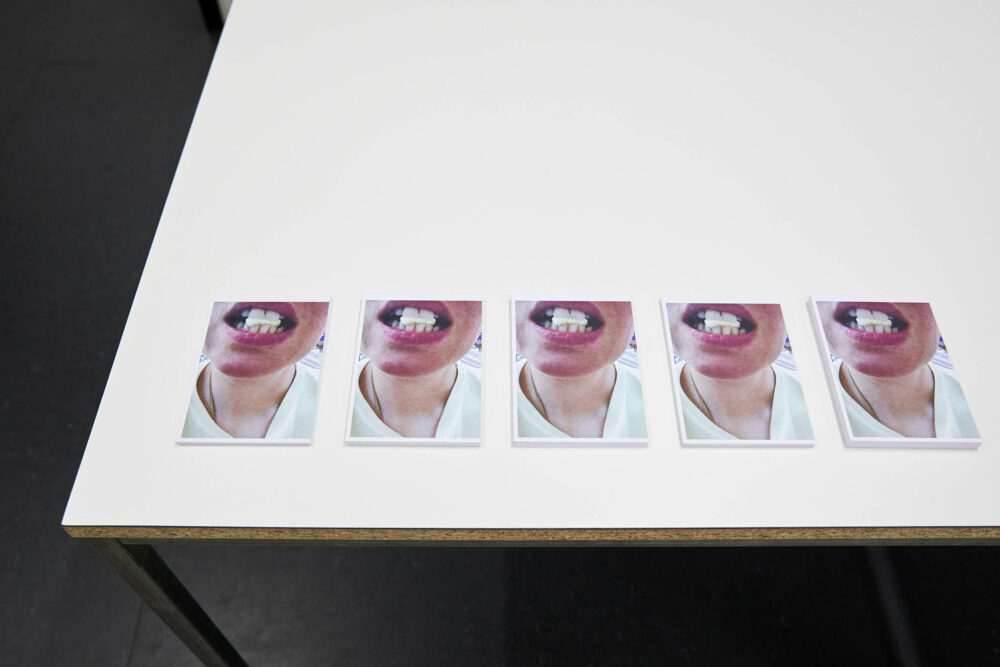Opening and summer party, June 11, 2024, 6 pm
Exhibition, June 12 – September 13, 2024
Installation, swap meet and audio play
On the evening of the opening, Vina Yun, hosted by Steffi Parlow,
will read her essay “Essen” from the volume “Eure Heimat ist unser
Albtraum” (ed. Fatma Aydemir & Hengameh Yaghoobifarah,
Ullstein, 2019) at 6:30 pm.
Steffi Parlow creates situations marked by ambiguity. The visual artist and cook invites people to be open, to open themselves to her ideas. One of her media is food dishes, which she not only conceives but also prepares on her own. Parlow takes a multifaceted approach to cooking and eating. “Particularly in the context of food, I am interested in the discrepancy between visual aversion, unconditional curiosity, and gustatory devotion. Texture and consistency play just as big a role as taste and memories, whether in industrially processed foods or elaborately handmade ones,” says the artist. Making cooking a primary form of artistic expression and pursuing paths beyond those of the gourmet kitchen means granting a fundamental human activity the attention it deserves.
In Steffi Parlow’s practice, the temporary encounter at a performance or a dinner sometimes becomes the work itself. For the artist, the design of the involved objects and spaces as well as the resulting situations are genuine sculptural tasks. The elements she employs, such as sculptures, installations, or unusual containers for food, are co-performers on par with the artist and her guests. Switching between different disciplines or prompting overlaps at certain points is central to Steffi Parlow’s approach: her art and installation practice, her social engagement, her culinary activities—all of this is thrown into one pot to explore how specific constellations of objects and processes can spur new encounters and spaces of action. These overlaps between performative action, object, and social interaction guide her artistic work.
For Kunstraum Lakeside, Steffi Parlow has developed a new installation about tangible memories and how they are attached to food. Her formal starting point is her childhood room, which had a hatch in the floor that led to the family pantry. Inside, hand-made shelves were lined with glass jars of pickled fruit and vegetables from their own garden. Born in 1983 in the former GDR, the artist recalls an act of family stockpiling, which is no longer deemed necessary today given the steady availability of fresh food. In her memory, however, it was never just about securing food in an uncertain supply situation: above all, it was about the comfort of family, togetherness, lineages, and shared (hi)stories. And all this, as it were, took the shape of preserving jars.
Drawing on the spatial-architectural setting of her childhood room and the pantry below with its curry yellow carpet and shelves, Parlow creates a platform for practices of care that are essential to human communal life, yet seldom negotiated in the realm of visual art. Although the artist revisits specific aspects of her personal biography, her aim is not merely to share her recollections in detail. Rather, she conjures an atmosphere that allows visitors to reflect on their own memories of food. For instance, the floor plan of the pantry and children’s room has been enlarged by a factor of 1.5, the sculptural elements of the installations are abstract representations as opposed to exact replicas, and even the reproduced sausage papers do not originate from her childhood. All these elements serve as catalysts to invoke embodied knowledge—embodied knowledge of the artist as well as knowledge of the visitors.
Like any good host, Steffi Parlow steps into the background, devoting attention to things that are forgotten or often overlooked. She encourages visitors to interact with her and with other visitors at the same time: the foods stored in the preserving jars in the exhibition display are not just objects to be looked at; they await to be eaten, just as the shelves are there to hold meaningful things added by visitors. Anyone who wishes can bring objects to the Kunstraum and swap it for one of Parlow’s jars. For the artist, sharing and exchanging are fundamental ingredients in a practice of solidarity distributed across multiple locations like a network.
In this work, preserving food and storing it in the family cellar become a metaphor for a heterarchical depot where things beneficial to community life can be preserved and used as needed. Food becomes a repository of information, as the smell, feel, and taste of food can involuntarily evoke memories in every person who tastes it, memories never identical to those of others. The items added by the visitors, too, serve as silent messengers of non-codified knowledge.
The title of the exhibition Goods only upon request. Window in progress highlights the processual nature of this holistic artistic setting. The set pieces from the artist’s childhood in the installation are complemented by others from the worlds of consumerism and advertising strategies. This in turn opens up new associations and ways of interpreting what is presented—and grasping it, in the true sense of the word. Steffi Parlow creates situations marked by ambiguity. The trick is letting us perceive them without resolving them.
Text: Gudrun Ratzinger
Photos: Johannes Puch
